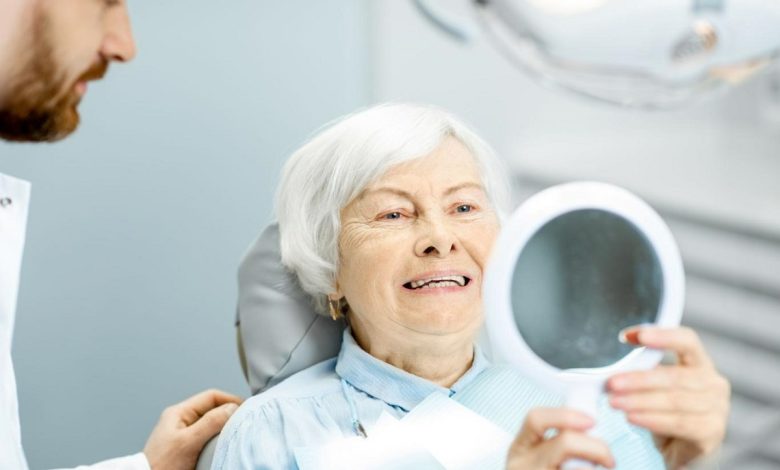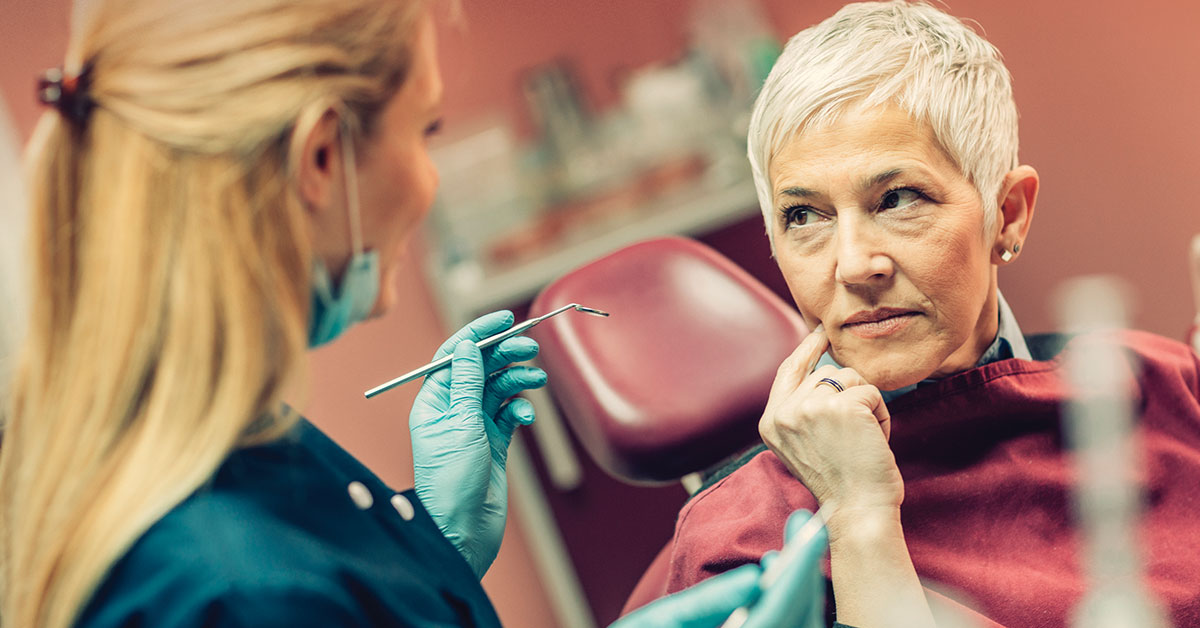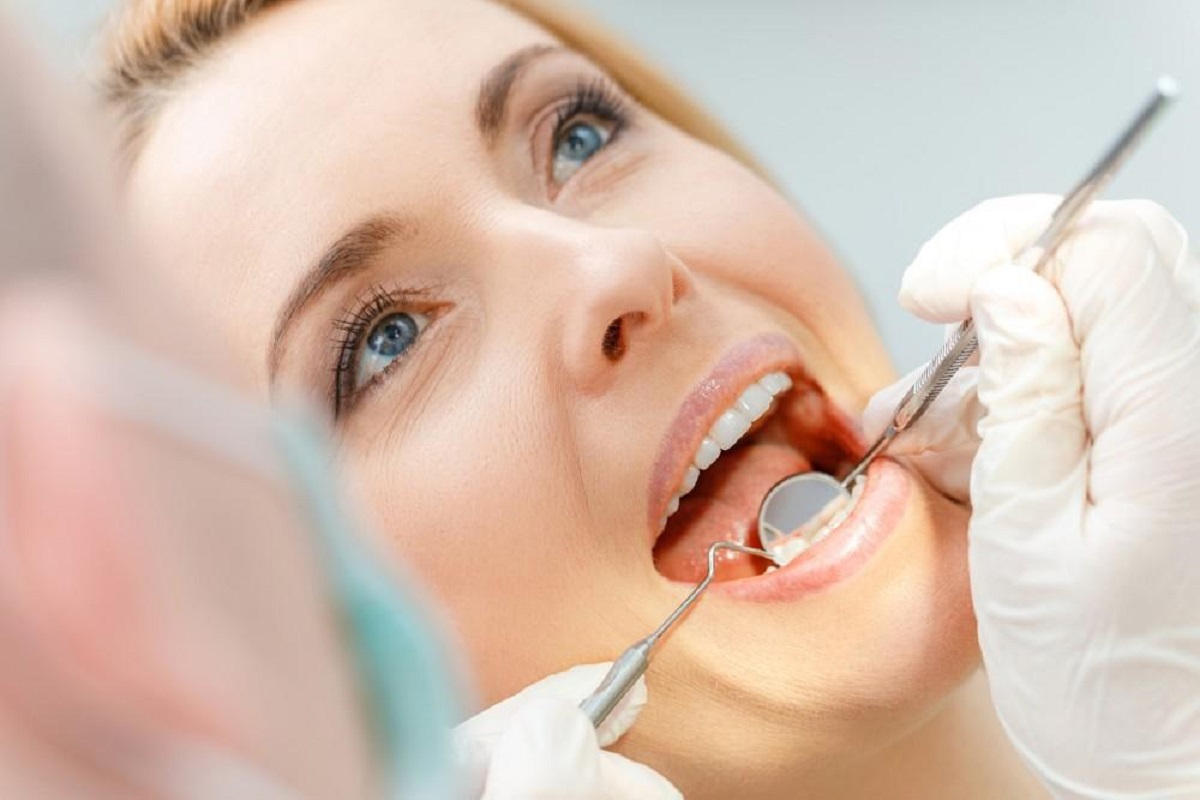The Impact Of Menopause On Oral Health: Understanding The Connection

Impact Of Menopause: Hot flashes and night sweats are commonly discussed symptoms of menopause, but what less is known is the significant effect menopause has on oral health.
The hormonal changes during menopause can lead to reduced estrogen levels, which affects bone density, saliva production, and gum health. Combined, these factors can greatly influence a woman’s dental well-being. However, experts emphasize that there are ways to mitigate these effects and maintain good oral health throughout menopause.
The Impact Of Menopause On Oral Health
Menopause, Perimenopause, And Dental Symptoms

Impact Of Menopause, Menopause officially begins when a woman goes 12 consecutive months without menstruating. However, many dental issues related to hormonal changes may begin during perimenopause, the period leading up to menopause when the ovaries start producing less estrogen.
One of the biggest concerns during this time is the reduction in saliva production. Saliva is often referred to by specialists as one of the “most important fluids in the body” due to its role in maintaining oral health. It helps keep the mouth moist, prevents the overgrowth of bacteria, and aids in digestion. Reduced saliva, or xerostomia (dry mouth), can increase the risk of fungal infections, cavities, and gum disease.
Dr. Maiara Hister-Cockrell, a dentist at the University of Texas School of Dentistry at San Antonio, explains that declining estrogen levels can have a profound impact on oral health, beginning in perimenopause. As saliva production decreases, women often experience a dry mouth, which leads to bacterial growth, tooth decay, and gum infections.
The Role Of Saliva And Bone Health
Impact Of Menopause, According to Dr. Sally Cram, a Washington D.C.-based periodontist, a decrease in saliva means there are fewer protective minerals and enzymes in the mouth. “Saliva plays a vital role in keeping the mouth clean by neutralizing acids produced by bacteria,” says Cram. When saliva production drops, bacterial growth increases, leading to a higher likelihood of tooth decay and, in severe cases, tooth loss.
In addition to dry mouth, another significant concern during menopause is the loss of bone density. Estrogen is crucial for maintaining bone strength, and when levels decline, women are at an increased risk of osteoporosis, which can affect the jawbone. The jawbone supports the teeth, and if it weakens, teeth become more vulnerable to loosening and loss.
Impact Of Menopause, Furthermore, receding gums are another common issue during menopause. As the gums recede, they expose more of the tooth’s surface, including areas without protective enamel. This makes teeth more susceptible to cavities. Women may also notice that their gums become more sensitive, red, and prone to bleeding, a condition known as gingivitis.
Gum Disease And Other Oral Conditions
Impact Of Menopause, Menopause also increases the likelihood of periodontal (gum) diseases, which can lead to swelling, redness, and bleeding of the gums. As gum tissue begins to pull away from the teeth, deep pockets form, creating spaces for bacteria to thrive. These pockets are difficult to clean properly and may eventually lead to tooth and bone loss if left untreated.
Another condition that some women experience is burning mouth syndrome. This condition is characterized by a painful, burning sensation in the mouth, which can affect the tongue, roof of the mouth, and lips. The exact cause isn’t well understood, but it’s often associated with hormonal changes and dry mouth, both of which are more common during menopause.
How To Manage Oral Health During Menopause

Impact Of Menopause, Experts agree that the best way to protect oral health during menopause is through proper dental hygiene and a balanced diet. Here are some key recommendations:
Maintain A Good Oral Hygiene Routine: Brush at least twice a day with fluoride toothpaste, and don’t forget to floss daily. Using an electric toothbrush can be more effective than manual brushing, as it removes plaque more efficiently.
Visit The Dentist Regularly: Dr. Cram advises seeing your dentist at least twice a year, or more frequently if recommended. Regular check-ups and cleanings are essential for detecting early signs of gum disease or tooth decay. Your dentist can also provide advice on proper brushing and flossing techniques tailored to your specific needs.
Stay Hydrated: Drinking plenty of water is one of the simplest ways to combat dry mouth. Water helps keep the mouth moist and washes away food particles and bacteria. In addition, women can use over-the-counter oral rinses, sprays, or lozenges designed to alleviate dry mouth.
Consider Calcium And Vitamin D Supplements: Since menopause can lead to bone density loss, including that of the jawbone, it’s essential to ensure adequate calcium and vitamin D intake. A diet rich in these nutrients supports bone health and can slow down bone loss associated with menopause.
Also Read:
8 Effective Home Remedies For Relieving An Itchy Throat
Nutrition For Menopause Dietitian: Foods To Relieve Symptoms And Aid Weight Loss
Hormone Therapy For Menopause: Is Hormone Therapy Good Or Bad For Menopausal Women?
How Pregnancy Changes The Brain: A Detailed Look At New Research




